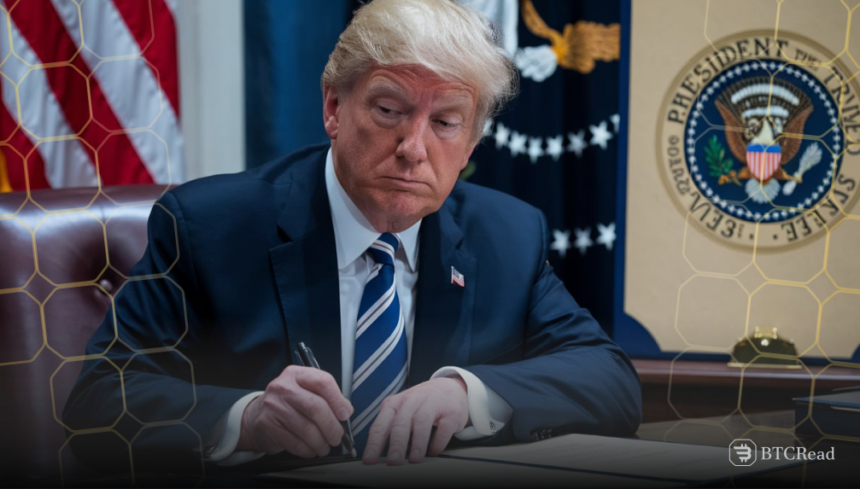The trade war between the United States and China has entered a new phase. Markets for cryptocurrency and equities responded sharply as tensions rose over fresh tariff escalations. The latest development followed President Donald Trump.
Trump signed an Executive Order earlier in the day. The order initiates an inquiry into the national security threats posed by the U.S. dependence on imported processed critical minerals and their derivatives.
The Secretary of Commerce will investigate Section 232 of the 1962 Trade Expansion Act. The inquiry will examine the impact of these imports on national security as well as industrial stability.
Trump tackles U.S. dependence on minerals
It will deal with the vulnerabilities of the supply chain, foreign producers’ market manipulation, and the necessity to enhance domestic production. A concluding report will be prepared by the Secretary. Recommendations to decrease reliance on foreign minerals and facilitate secure supply lines will be entailed in the report.
If the reports verify that the imports pose a national security threat, the President can implement new tariffs. The tariffs would be in place of existing reciprocal rates and would be consistent with the terms of a previous order dated April 2.
The Executive Order draws on the efforts of the Trump Administration to protect U.S. industries and innovations from foreign pressure. Critical minerals underpin important industries. These are employed in jet engines, guidance systems, radars, and secure communications.
These elements are also essential to semiconductors, high-end optics, and defense systems. Most of these materials still depend primarily on the U.S. relying on foreign nations, including competitors such as China. This offers a vulnerability in both the economic and national defense arenas.
Global industries impacted by export controls
Foreign sellers restricted sales and manipulated the prices. China prohibited exports of gallium, germanium, and antimony in recent times. Six of the rare earth metals and magnets were suspended from exports by China this week.
These actions impact world industries, such as the auto industry, the semiconductor industry, and the aerospace industry. President Trump’s foreign policy started with tough tariffs to defend U.S. interests. Most countries are now renegotiating trade agreements.
Negotiations are continuing, but the ongoing tariffs of up to 245% still face China, including new tariffs related to the fentanyl crisis as well as previous retaliation. The Administration further closed loopholes in steel and aluminum tariffs and launched similar investigations of imports of lumber, timber, and copper.
These efforts represent a continued dedication to safeguarding the resources of the U.S., supporting national industries, and assuring the long-term national interest in security and commerce.







